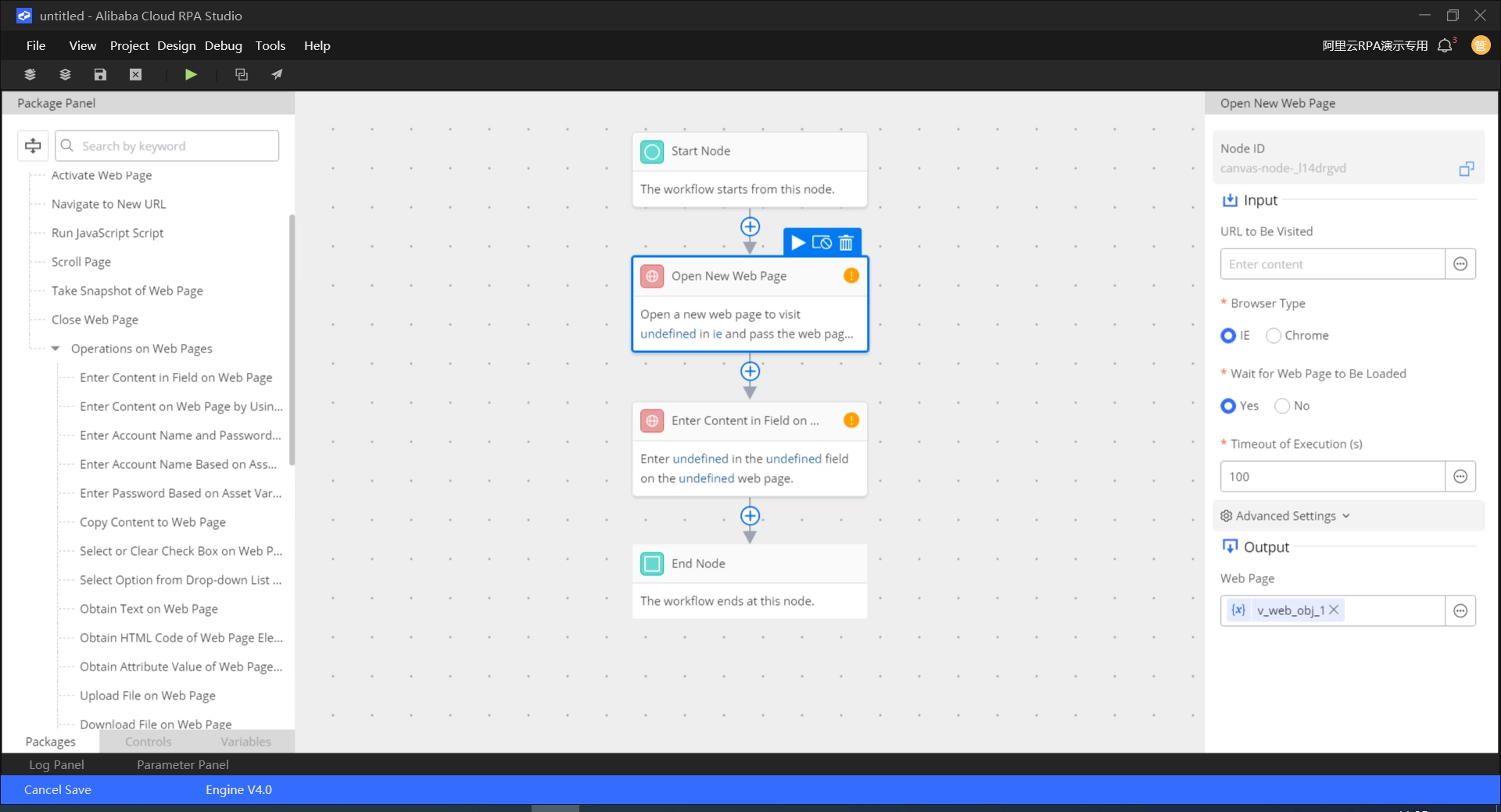
Significant Cost Reduction
RPA robots reduce processing costs by up to 80%. Most enterprises can obtain positive ROI in 12 months. The accumulated cost can be reduced by up to 20%.
100% Accuracy
RPA robots strictly conform to preset procedures and operation specifications to ensure work accuracy.
Non-invasive Integration
RPA robots are used by enterprises to improve system performance without the need to change the system architecture. In addition, daily operations and existing features of the IT system are unaffected.
Benefits
After eight years of internal verification, Alibaba Cloud RPA has covered most Alibaba Business Units (BUs). It is a common solution for emerging industries, such as e-commerce customer service and new retail.
-

High Efficiency
Improves data processing efficiency up to 20 times for repetitive tasks.
-

Cross-system Data Integration
Creates an efficient and reliable Data Mid-End using non-invasive cross-system connections.
-

AI Support from Alibaba DAMO Academy
Integrates AI technologies, such as natural language processing (NLP) and Optical Character Recognition (OCR).
-

ROI Improvement
Simplifies the development process to help you quickly create process automated applications. This releases labor resources and improves efficiency and Return on Investment (ROI).
-

Scalability
Provides rich SDK automation modules that support custom SDK libraries.
-

High Security and Stability
Solves data silo issues without the need to obtain system permissions or store system data using a non-invasive design.
Scenarios
Banking
RPA robots use non-invasive deployment and are separate from bank applications. The deployment of RPA robots does not change or upgrade the core IT infrastructure of a bank.
Healthcare
RPA simplifies information integration for the medical industry. This provides a method to simplify medical processes and release labor resources.
Education
Educational RPA robots can substitute some human labor in the processes related to enrollment, admission, attendance, meetings, class arrangement, procurement, score management, human resource, and finance.
Retail
A significant increase in the application of RPA revitalizes the retail industry. Retail enterprises require the use of RPA to simplify product flow and gain competitive advantages over market rivals.
Manufacturing
Manufacturing companies use RPA to automate their processes and shorten the turnaround time. This improves the efficiency of core business process management, reduces costs, and releases labor resources.
Insurance
RPA changes the daily operations and management of insurance companies. You no longer need to perform tedious manual data input and transcription tasks. This improves process efficiency.


















